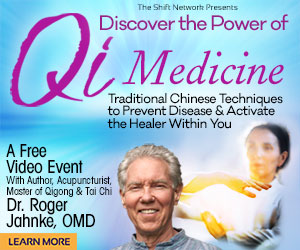By Donna Gates
Guest Writer for Wake Up World
Okay, they taste good… and they’re easy. In fact, they’re everywhere you look. Processed foods seem like the answer to today’s busy lives. And new fads and fancy advertisements make promises that keep us coming back for more.
But before you hit the vending machine or the fast food window, find out what the processed food industry doesn’t want you to know.
1. Processed foods are addictive and can cause you to over-eat.
Whole foods are made up of carbohydrates, proteins, fats, fiber and water. When foods are processed the components of these foods are modified (for example, fiber, water and nutrients are removed) and in other cases, components are concentrated. In each case, processing changes the way they are digested and assimilated in your body.
Eating highly processed or highly concentrated foods can artificially stimulate dopamine (the pleasure neurotransmitter), which plays a role in addiction. In this way, you are eating foods that lack nutrients and fiber, but create a pleasurable feeling.
A food addiction starts because you feel good when you are eating these foods and they make you think they taste better. You crave that pleasurable feeling again and again and viola… this is what starts a food addiction.[1]
2. Processed foods are linked to obesity.
Additives in processed foods, like high fructose corn syrup, sugar and MSG have been linked to weight gain and obesity.[2]
Dr. Mercola recently reported about a new study that showed childhood obesity could be reduced by 18 percent, simply by cutting out fast food advertisements during children’s programming.[3] The Australian government is clearly more concerned about their children’s health as television advertisements to children were banned several years ago.
3. Processed foods often contain ingredients that do not follow the principle of food combining, which can lead to low energy, poor digestion, illness, acidic blood and weight gain.
An example would be a frozen meat and cheese pizza. Cheese (a dairy product), meat (an animal protein) and pizza crust (a grain product) make a terrible food combination that can wreak havoc on your digestive health.
4. Processed foods contribute to an imbalanced inner ecosystem, which can lead to digestive problems, cravings, illness and disease. Beneficial microflora cannot survive in your digestive tract when you are poisoning them. Like us they thrive on foods that are made by nature not by man.
5. A diet high in processed foods can lead to depression, memory issues and mood swings.
Ingredients in processed foods are often the lowest cost and sub-par, nutritionally. For example, the fats and oils used in processed foods are refined, which means they are stripped of the essential fatty acids necessary for healthy blood sugar levels, moods and memory. Your heart, hormones and brain suffer when you choose to eat these fats and oils. Instead choose the organic, unrefined or “virgin” fats and oils that are recommended on The Body Ecology Diet.
6. Processed foods often go hand in hand with “eating on the run” or multitasking.
Most people will choose convenience if they are on the run and in today’s busy lives, who of us isn’t? Unfortunately, multitasking while eating causes people to lose touch with their natural appetite, often leading to weight gain. Additionally, multitasking sends the wrong signals to your digestive system, which needs to be in a restful mode to digest properly.
7. Nutrition labels on processed foods are often misleading and have harmful health effects.
Many labels say “sugar free,” but contain other sweeteners like agave, which is like high fructose corn syrup. Additionally, product labeling may hide ingredients like GM (genetically modified) foods and harmful additives like MSG. These are hidden behind words on the label like “natural flavorings” or “approved spices”.[4]
8. Diets high in processed meats (like hot dogs and deli meats) have been linked to various forms of cancer, such as pancreatic cancer, colorectal cancer and stomach cancer.[5]
9. Eating too many processed foods can lead to infertility and malnutrition.
Processed foods, like cereal, are stripped of important vitamins and nutrients that your body truly needs. You could be eating a large amount of calories and still be malnourished if your diet is high in processed foods. Animal studies have shown that over three generations, a deficient diet causes reproduction to cease.[6] Today, infertility is on the rise, affecting 7.3 million people in America alone.
10. Processed foods are made for long shelf-life, not long human life!
Chemicals, additives and preservatives are added to processed foods so that they will last for a long time without going rancid or affecting the taste of the food. Food manufacturers spend time, money and research on beautiful packaging and strategies to lengthen shelf-life, with little attention on how the foods will lengthen your life or create lasting health.[7]
Honor Your Body With Body Ecology
Eating processed foods is a vicious cycle. They are convenient, they taste good, we get quick energy and pleasure… then comes the slump. We rebound from this slump by eating even more processed food and the vicious cycle continues. Over time, your energy drops. Perhaps you notice weight gain or other signs of aging.
So how do you break the vicious cycle?
By following the 7 healthy eating principles of the Body Ecology program and choosing our delicious, properly prepared “real” foods. Body Ecology is a whole foods diet that can create new health in your digestive system, and your immune system and also restore your youthful vitality.
One simple, convenient change can boost your health and immunity!
If you are living life on the go, how about adding at least 2-4 ounces of probiotic-rich Coco-Biotic to your daily routine? Fast, easy AND super healthy, Coco-Biotic aids your digestion, boosts your energy and is a best-kept beauty secret for beautiful skin and hair. Forgo those so-called energy drinks and choose Coco-Biotic for long lasting health and beauty!
If you are not ready to change your diet completely, here are two quick, easy steps that pack a huge punch in health benefits:
1. Add fermented foods and drinks to your diet.
Fermented foods and drinks, like cultured vegetables and probiotic liquids are key to aiding your digestion, boosting your immunity and providing lasting energy. Start today by committing to a shot of probiotic-rich Coco-Biotic before breakfast and again for a mid-afternoon pick me up. Quick and convenient, it’s a much more potent treat or “pleasure-booster” to give your body during your busy day.
2. Ditch your sugar and substitute with all-natural Lakanto.
Zero-calorie, zero-gylcemic index and safe for diabetics, Lakanto is the best way to break your sugar addiction. We have received e-mails each week from people who tell us that by discovering Lakanto they now can avoid sugar. They feel great, have lost a lot of weight and couldn’t have broken their sugar addiction without it. It’s natural to want to satisfy your sweet tooth, but you deserve to be healthy too! Simply replace your sugar with Lakanto, which looks, tastes and bakes like sugar – and you’ll be on your way to delicious health!
These two steps alone may have you feeling so energized that you are ready to tackle the Body Ecology program for even better health!
Honor your body, your taste buds AND your health with the 7 principles of Body Ecology. Changing a few habits today can lead to a lifetime of good health!
Sources:
- Goldhammer, Alan, D.C., Dietary Addictions: Why eating healthfully is so difficult. National Health Association.
- Tsang, Gloria, R.D. and Girdler, Lauren. MSG and Your Weight. September 2008. Health Castle. http://www.healthcastle.com/msg
- Mercola, Joe, O.D. Simple Change Could Reduce Obesity in U.S. by 20 Percent. Mercola.com.
Krebs, Al. New Poll – 94% of Americans Want Labels on GE Foods. Organic Consumers. - Tsang, Gloria, R.D., Processed Meat and Cancer. August 2006. Health Castle.
- Fallon, Sally. Dirty Secrets of the Food Processing Industry. Weston A. Price Foundation.
- Davis, Jordan K., M.D. Shelf Life is Not Your Life. Total Health Communications.
- Vangsness, R.D., L.D.N., C.N.S.D. Mastering the Mindful Meal. Brigham and Women’s Hospital.
About the author:
Donna Gates is the international bestselling author of The Body Ecology Diet: Recovering Your Health and Rebuilding Your Immunity, The Baby Boomer Diet: Anti-Aging Wisdom For Every Generation, and Stevia: Cooking with Nature’s Calorie-Free Sweetener. Her most recent book The Body Ecology Guide To Growing Younger: Anti-Aging Wisdom for Every Generation was published in January 2013.
Donna’s groundbreaking work has been instrumental in transforming the natural foods industry. Over the past 25 years, Donna has become one of the most loved and respected authorities in the field of digestive health, diet, and nutrition, enjoying a worldwide reputation as an expert in candida, adrenal fatigue, autism, autoimmune diseases, weight loss and anti-aging. She regularly contributes to The Huffington Post and The Daily Love, lectures at the “I Can Do It!” Conference, The Longevity Now Conference, and Women’s Wellness Conference, and hosts a show on Hay House Radio.
As a key figure in the autism movement, Donna works with top doctors in the field who view her diet as instrumental in changing the theory behind and treatment of the disorder. She founded Body Ecology Diet Recovering Our Kids (BEDROK), an active online community of over 2,000 parents, many of whom have seen their children previously diagnosed with autism achieve full recovery.
For more information, please visit www.bodyecology.com

If you've ever found value in our articles, we'd greatly appreciate your support by purchasing Mindful Meditation Techniques for Kids - A Practical Guide for Adults to Empower Kids with the Gift of Inner Peace and Resilience for Life.
In the spirit of mindfulness, we encourage you to choose the paperback version. Delve into its pages away from screen glare and notifications, allowing yourself to fully immerse in the transformative practices within. The physical book enriches the learning process and serves as a tangible commitment to mindfulness, easily shared among family and friends.
Over the past few years, Wake Up World has faced significant online censorship, impacting our financial ability to stay online. Instead of soliciting donations, we're exploring win-win solutions with our readers to remain financially viable. Moving into book publishing, we hope to secure ongoing funds to continue our mission. With over 8,500 articles published in the past 13 years, we are committed to keeping our content free and accessible to everyone, without resorting to a paywall.








